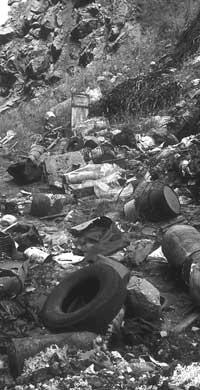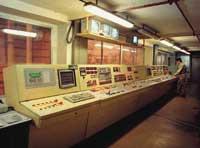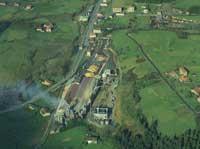Environment and industry: clean production

The disproportionate and wasteful production of consumer products is causing waste, deterioration and exhaustion of the planet's natural resources. The Earth is suffering a strong pollution and degradation and it can be said that since the human being is human, the Earth is living the worst state of alert.
Therefore, the rational use of resources and the abandonment of dangerous substances is becoming a necessary condition, since it is the only way that guarantees the survival and well-being of our descendants. Faced with a state of contamination, the industry should adopt a philosophy and practice of “clean production”. The concept of clean production arises from the U.S. Environment Agency (EEA), which defines it as a productive process that does not pose a sanitary prejudice for the worker and the environment. For this purpose, it is a basic requirement to replace the company's processes, products and raw materials that use hazardous substances or generate toxic by-products.
Europe brings us laws of recommendation and converging efforts
By the way, this is not easy, since it forces many companies to radically change their entire production process and, of course, their development would require an investment and extraordinary effort. However, for the tranquility of entrepreneurs and to the detriment of the environment, there is no law that obliges this type of radical changes. Specifically, the European Union has developed two fundamental rules for the environmental management of the company: Ecoaudit regulation and ISO 14.001.
In spite of not being the same, both norms regulate the way to carry out an exhaustive environmental analysis of the production process of the company, that is, the analysis of the flows of energy, matter and water, and the improvements in the locations in which there are defects. None of them obliges the company to carry out an environmental study, an option that remains in the hands of its will and will.

However, it is foreseeable that in the future products will be demanded with a clean production process in the European market. Therefore, the realization of an environmental audit will be essential for any company in a competitive future. Both standards have been adapted by the European Union.
In any case, the ultimate purpose of these standards is not to promote clean productive processes, but to put more or less strict limits on pollution. Therefore, a company that strictly complies with environmental legislation does not have to have a clean production process, that is, it can continue to pollute the environment despite being legally subjected. This paradoxical situation will be very normal in the future if things do not change.
The environmental policy that the Basque institutions are carrying out today is conditioned by the community regulations. The Industrial Pollution Prevention Directive, known as IPPC and published in 1996, is the norm that can most mark the direction of certain industrial sectors at this time and in the near future. This Directive includes a set of measures aimed at avoiding and inevitably reducing emissions to water, atmosphere and soil, including waste.
Companies in certain sectors, such as chemical or metallurgical, will be required to carry out a comprehensive evaluation of the production process before obtaining the activity license. This Directive also provides a unified form of licensing for the proper coordination of these licenses in the authorization procedures in which different competent authorities participate.

With the impetus of the Directive, companies are expected to make efforts to reduce pollution and minimize waste.
In addition to the IPPC, there are two other Directives that will be decisive at European level in the future: on the one hand, the Landfill Directive, which has not yet been published for its complexity in the complicated procedures and, on the other, the Air Pollution Directive, published at the end of 1996 as a continuation of the IPPC. Both Directives seek to harmonize the sectoral laws existing within the European Union.
The non-generation of waste is not sufficiently prioritized in current policy
In the European Union prevention is the absolute priority. In terms of waste, the European Administration aims to promote technology and clean products, reduce the danger of waste, and promote the reuse and recycling of waste products. The Commission in its Communication on the review of its waste management strategy says: “The policy which aims to avoid the production of more waste should take into account the product and its production (...) In order to achieve efficiency we must take into account the life cycle of the product in its entirety, from the moment of its production to its disposal, without forgetting the collection, recycling...”
Around the new European strategy on waste there are some areas that generate discussions and debates, such as the so-called “waste” or “no waste”, that is, there is a tendency to declassify certain hazardous waste, among which are some that damage public health or the environment. He is looking at whether to prioritize the regulation or the adoption of voluntary agreements in another controversy that is at the head. The risk of an “environmental dumping” if the initiatives in favor of the environment are left to the will, as some companies will assume real commitments and others will not. Therefore, regulation seems reasonable, at least in part. In fact, the V of the European Union.

As a result of the implementation of the program, which left most of it in the hands of the will, it has been found that all measures require strict rules to advance. This is the case of the control of products that damage ozone, of the producers of acid rain, etc. All of them have strict legislation behind them.
On the other hand, in recent years there has been a debate about the incineration of toxic waste. Incinerating plants are usually presented as a suitable way to solve the problems generated by landfills, since they greatly reduce the amount of waste, giving the feeling that the problem is eliminated above. However, if we look in another way, the residues are limited to moving toxic substances, that is, from soil to air, and then the problem goes from local to global.
Therefore, the most sensible behavior would be to significantly reduce waste production and reduce its toxicity through different pretreatments. In addition, waste that cannot be avoided should be stored in special tanks that allow recycling or providing an adequate alternative on the day technology is sufficiently developed.





